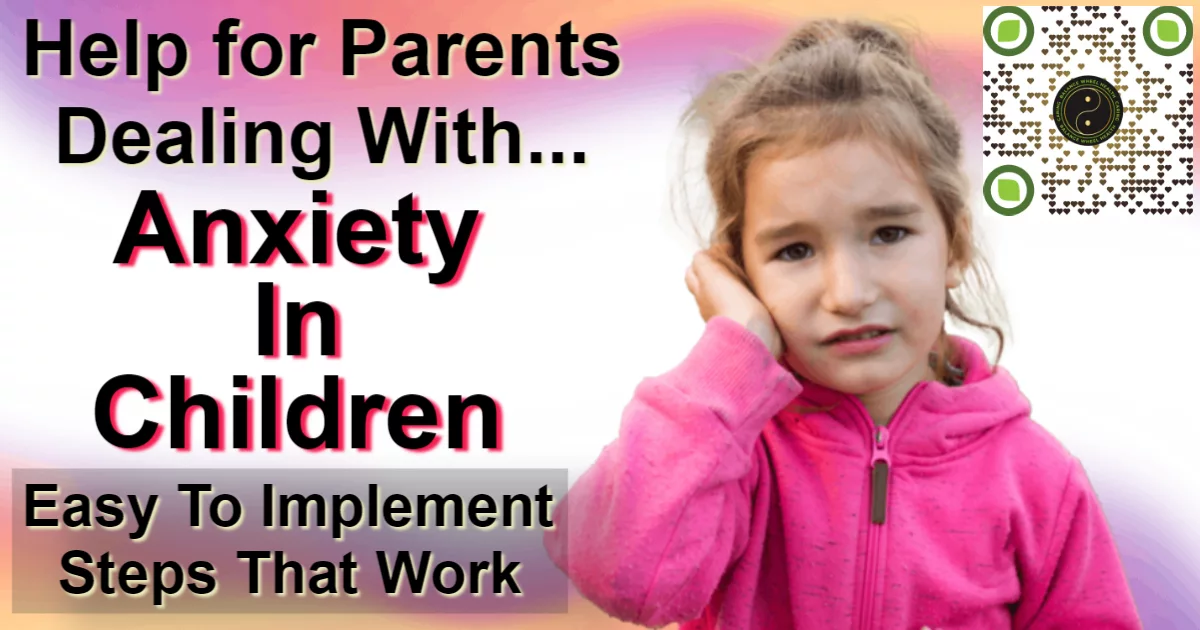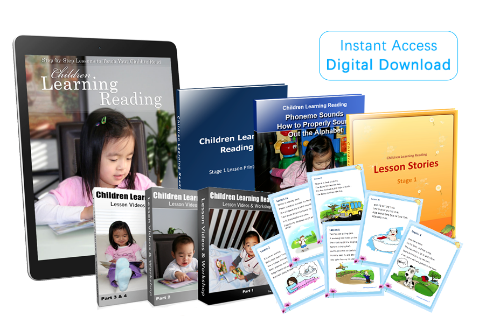Overcoming Anxiety in Children and Teenagers: Fostering a Balanced Lifestyle for a Brighter Future.
Learn How To Help A Child With Anxiety Today!
Introduction: Tackling Anxiety By Living A Harmounious Lifestyle Helps Your Child Flourish
Anxiety challenges with children and teenagers is a prevalent issue that can significantly impact their lives. By nurturing a harmonious lifestyle, parents can help their kids cope with anxiety, develop essential skills, and build resilience for a brighter future. This comprehensive blog post will explore the importance of diet, physical activity, spirituality, education, and the role of organized sports in helping deal with mental stress. We will also discuss the significance of early education programs, specifically the Children Learning Reading program, and the benefits of supplemental education for teenagers.
Diet: The Key to Managing A Child’s Anxiety. A Bad Diet Causes Anxiety, if a child is anxious take a closer look at their diet.
The saying “you are what you eat” holds true when it comes to managing anxiety problems for children and adolescents. An unhealthy diet, especially one high in sugar consumption, can exacerbate anxiety and depression symptoms and hinder a child’s ability to cope. A sound diet, on the other hand, provides the essential nutrients needed to support mental and emotional well-being.
To help your child maintain a sound diet, encourage them to consume whole grains, lean proteins, healthy fats, and plenty of fruits and vegetables. These nutrient-rich foods help stabilize blood sugar levels, promote calmness, and provide essential vitamins and minerals that support mental health. Omega-3 fatty acids, found in fish, nuts, and seeds, are particularly beneficial in reducing anxiety and improving mood.
Sugar Consumption Can Cause Anxiety And Fear In Children. The Best Strategy To Help Kids With Anxiety And Depression Is To Eliminate Sugar From Their Diet

It’s essential to address the connection between sugar consumption and anxiety in children. Excessive sugar intake can indeed contribute to feelings of anxiety and fear, as it can cause sudden spikes and crashes in blood sugar levels, leading to mood swings, irritability, and nervousness. To help kids struggling with anxiety and depression, one of the best strategies is to eliminate or significantly reduce sugar from their diet. This dietary change can help stabilize blood sugar levels, promote mental clarity, and contribute to an overall sense of calm and well-being. Encouraging a diet rich in whole grains, lean proteins, healthy fats, and plenty of fruits and vegetables can greatly impact a young persons emotional and physical health, providing a strong foundation for managing anxiety and fostering a balanced lifestyle.
Physical Activity: Exercise automatically helps a child cope with stress.
Regular physical activity is crucial in helping kids and teenagers manage anxiety. Exercise releases endorphins, the body’s natural “feel-good” chemicals, which alleviate stress and improve mood. Organized sports, in particular, provide numerous benefits for anxious kids. In addition to promoting physical health, participation in sports helps kids develop teamwork, communication, and resilience – essential skills that an anxious child needs.
To foster a harmonious approach to physical activity, encourage your child to participate in both organized sports and unstructured playtime. This combination allows kids to experience the benefits of structured exercise while also promoting creativity, problem-solving, and critical thinking. By Letting your child explore these types of activity they’ll stop feeling anxious and your kid may thank you for it.
Spirituality: Cultivating Inner Peace and Emotional Resilience Help Kids Stop Feeling Anxious
Spirituality, regardless of one’s religious or spiritual beliefs, is an essential aspect of a sound lifestyle that can help children and teenagers cope with anxiety. Nurturing inner peace, emotional resilience, and a connection to a greater purpose provides a solid foundation for overcoming anxiety disorders. A spriritual child feels connected to the world and helps them face their fears in a subtle but powerful way.
Families can adopt various practices to foster spiritual harmony, such as meditation, mindfulness, prayer, or spending time in nature. Encourage your kid to explore these practices and find what resonates with them. Incorporating these activities into your family’s daily routine can help create a sense of tranquility and emotional stability, ultimately reducing anxiety. It’s a great way to help alleviate a kid’s fear. The hidden benefit is that is helpful for every member of the familiy, whether that be a child or teen or the parents or caregivers themselves.
Empower your child’s confidence with early supplemental education to prevent the onset of anxiety and depression.
Invest in your child’s future by ensuring they have the tools they need to thrive and succeed with a strong educational foundation. Let’s take action now to build a brighter tomorrow for our children!
Early education programs can significantly impact a child’s confidence and emotional well-being, helping to prevent anxiety as they enter school. The Children Learning Reading program, found at https://yesshowme.com/howtoread, uses a step-by-step approach to teach children as young as two years old how to read with ease and confidence. By learning to read at an early age, children develop a strong foundation in literacy, enabling them to excel academically and navigate social situations with greater confidence. Learning to read at an early age lets your child know there’s another world of adventure that can be found through reading. This allows your child to feel confident but more importantly it will help your child learn advance concepts early and it’s a great strategy to help your child experience joy and happiness while learning.
As children grow older and transition into adolescence, supplemental education programs become increasingly important in maintaining their confidence and reducing anxiety. Enrichment programs, tutoring, and extracurricular activities help teenagers expand their knowledge, develop new talents, and cultivate a growth mindset. By providing additional educational opportunities, parents can ensure that their children continue to thrive academically and emotionally, fostering resilience and a sense of accomplishment. Studies have shown one of the easiest ways to help a child with anxiety is to give them the supplemental tools that will help them learn and build confidence.
Organized Sports: Building Essential Life Skills and helps any child facing an anxiety disorder.
Participation in organized sports offers a multitude of benefits that can help children and teenagers deal with anxiety. Sports not only promote physical health but also help develop essential life skills such as teamwork, communication, and resilience. These skills contribute to a child’s ability to cope with stress and anxiety and foster emotional well-being. A child that has never experienced team play then suddenly finds themselves in a team sport, that lack of experience could make their anxiety worse.
Encourage your child to participate in organized sports that interest them. This involvement will provide them with a structured environment where they can learn to manage stress, build self-discipline, and develop essential social skills.
The Power of Early Education: Building Confidence Through Literacy Helps Conquer Fears and Anxiety
Teaching children to read at an early age can significantly impact their confidence and emotional well-being, helping to prevent anxiety as they enter school. The Children Learning Reading program, found at https://yesshowme.com/howtoread, uses a step-by-step approach to teach children as young as two years old how to read with ease and confidence. By learning to read at an early age, children develop a strong foundation in literacy, enabling them to excel academically and navigate social situations with greater confidence.
Supplemental Education for Teens: Supporting Growth and Development
As children grow older and transition into adolescence, supplemental education programs become increasingly important in maintaining their confidence and reducing anxiety. Enrichment programs, tutoring, and extracurricular activities help teenagers expand their knowledge, develop new skills, and cultivate a growth mindset. By providing additional educational opportunities, parents can ensure that their children continue to thrive academically and emotionally, fostering resilience and a sense of accomplishment.
An Anxious Child Or A Child With A Severe Anxiety Disorder Or Depression May Require Professional Help. Don’t Be Afraid To Seek Professional Help
As a parent or caregiver, it’s crucial to recognize when your child is dealing with severe anxiety, fear, or depression. Anxiety symptoms can manifest in various ways, and it’s essential to understand that anxiety is a normal part of life. However, when these symptoms of anxiety become overwhelming and persistent, it may be indicative of a more severe issue, such as generalized anxiety disorder or another type of anxiety disorder. In such cases, it is vital to seek professional help to ensure your child receives the appropriate treatment for anxiety.
Diagnosed with an anxiety disorder, your child may need additional support to help them feel more at ease and cope with their feelings. Therapy for anxiety, such as cognitive-behavioral therapy (CBT), can be beneficial in helping children avoid reinforcing their anxiety and learn to tolerate their fears. As a parent, there are several ways you can help your child as they navigate these challenges. Encourage your child to talk openly about their feelings and express their concerns. Reassure your child that it’s okay to feel anxious, and make sure they know that you appreciate their efforts in dealing with their anxiety.
Communication is key in helping kids cope with anxiety. Talk to your child about different types of anxiety disorders and the various strategies that can help them overcome their fears. Encourage your child to take an active role in their treatment and develop coping strategies to manage their anxiety in the long term. It’s also essential to be patient and understanding as your child deals with their anxiety. Remember, whether your child has separation anxiety disorder or another type of anxiety, seeking professional help is a critical step in ensuring their well-being and helping them become more resilient individuals.
Conclusion: Embracing a Comprehensive Approach is an effective treatment for anxiety in children. Remember To Seek Professional Help If Needed.
In conclusion, a balanced lifestyle that incorporates a balanced diet, physical activity, spiritual Balance, educational balance, and participation in organized sports can play a significant role to help kids overcome fear and anxiety and promote overall well-being. Early education programs, such as the Children Learning Reading program, and supplemental education for teenagers, provide valuable support in maintaining confidence and reducing anxiety.
By embracing a comprehensive approach that addresses various aspects of a child’s life, parents can help their children build confidence, reduce anxiety, and foster a strong foundation for a happy, healthy life. With the right support, children and teenagers can successfully navigate the challenges of anxiety and emerge stronger, more resilient, and better equipped to face the future.
The best way that parents can help is to enroll in the Balanced Wheel Health FREE 10 Part Video Course Overcoming Anxiety.
As the author of this blog post, I understand the importance of providing value to the reader, especially when discussing a sensitive topic like anxiety in children. With that in mind, I am excited to offer you a fantastic opportunity to gain access to a comprehensive and informative 10-part video course, absolutely FREE.
The course, titled “Overcoming Anxiety,” requires no credit card to enroll, and is specifically designed to provide you with valuable insights and actionable advice on dealing with various aspects of anxiety. You’ll find modules covering Explaining Generalized Anxiety Disorder, Anxiety Treatment Options, Anxiety About Health, Anxiety About Work, Anxiety in Relationships, and of course, Anxiety in Children.
Don’t miss this incredible chance to empower yourself with knowledge and strategies to better understand and manage anxiety in all areas of life. To enroll in the “Overcoming Anxiety” video course, simply visit https://balancedwheelhealth.com and start your journey towards a happier, more balanced life today.
You Learn Ways to help kids overcome anxiety. You’ll be able to help your child develop coping strategies for everyday life sitations.
As a parent, enrolling in Balanced Wheel Health’s Free 10-part video course can provide you with invaluable tools and knowledge to better support your child dealing with anxiety. By learning how to effectively communicate with your child, you’ll be able to create an open and nurturing environment where they feel comfortable expressing their emotions. The course will teach you how to talk to your child, encourage them to open up, and provide reassurance in times of need. You’ll discover lifestyle strategies that can help your child overcome anxiety, and gain a deeper understanding of the different types of anxiety disorders, including separation anxiety disorder. This knowledge will enable you to empathize with your child’s feelings and provide the appropriate support and encouragement for them to face their fears.
Furthermore, the video course will empower you with the skills to help your child develop essential coping strategies for managing anxiety in the long term. You’ll learn how to guide them in building resilience, tolerating stress, and reinforcing positive behaviors. By understanding that anxiety is a normal part of life, you can reassure your child and help them recognize their own strengths and capabilities. Enrolling in this comprehensive course will not only benefit your anxious child but also foster a stronger bond between you and your child, as you become better equipped to support them in their journey to overcome anxiety and lead a more balanced life.


.png)









This is cool! Interesting to hear that the sugars mount tension and increase anxiety. Wondering how much more they’d be contributing to adult anxiety too. Thanks for the informative post.
It’s a major factor. I’d worked with Dr. Dwight Lundel for many years. He wrote the book the cure for heart disease. He taught me a great deal about the relationship between sugar and anxiety.
Adults are affected equally. Check out https://balancedwheelhealth.com it’s a 100% Free Course and covers a lot about anxiety issues related to diet.
This is a great holistic approach to a hard-to-tackle issue! Thank you for covering it so well 🙂
Thank you for the positive comment